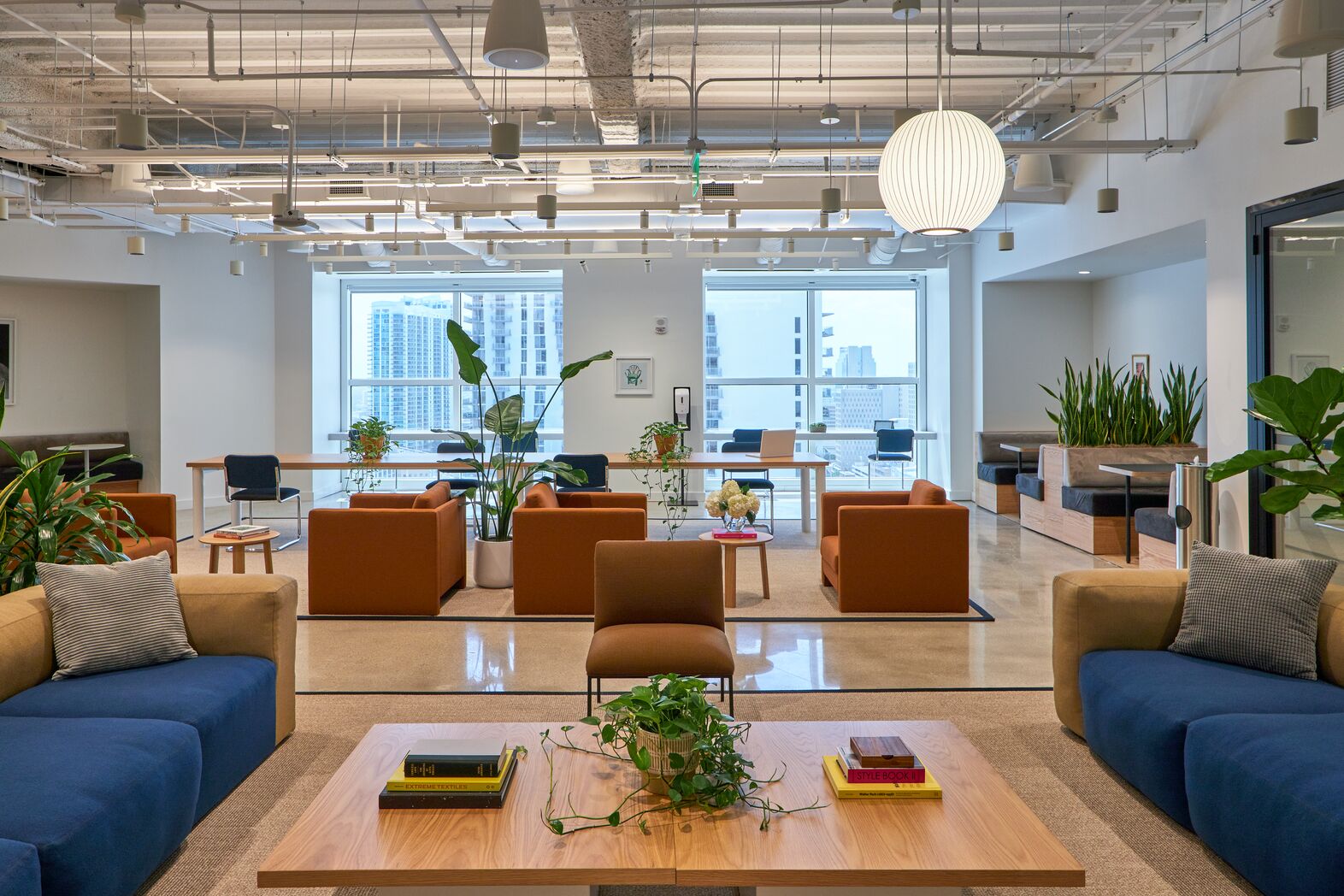Many entrepreneurs draw on their own life experiences to build companies that fill missing gaps in the marketplace. Need is what often spurs entrepreneurial innovation.
These three business owners all realized, through their personal and cultural experiences, that something was missing in their respective industries. So they set out to create brands that would fulfill those needs—and are now reinterpreting fast-casual Chinese food, advocating for natural beauty products, and creating tech-driven marketing strategies for restaurants.
Meet Lucas Sin of Junzi Kitchen, a New York City chain serving customizable Chinese-American noodles and rice bowls; Po Chen of Nourish Clean Beauty, a beauty company with a cruelty-free, toxin-free message; and Wilson Lee of Food Works Agency, a firm designing advertising campaigns for food brands.
Making Chinese flavors more accessible
After moving from Hong Kong to the United States to attend Yale University, chef Lucas Sin deeply missed the home-cooked Chinese food he grew up eating. He didn’t know of many fast-casual restaurants that cooked Chinese dishes in a way that tasted familiar to him—and none seemed to offer customizable meals in a laid-back, counter-service atmosphere.
“[I had] a little bit of a craving for a certain type of Chinese food that we could eat on a regular basis—that was regional, that was homestyle, that was vegetable-forward,” says Sin.
At the time, Sin ran a pop-up restaurant on the Yale campus. A group of fellow students who shared Sin’s nostalgia for Chinese cooking met him at one of these pop-ups and asked him to come on board a new restaurant venture. Together, they launched Junzi Kitchen, a fast-casual eatery serving the braised meats and pickled vegetables of Northern China scooped atop noodle bowls and wrapped inside chun bings (thin flour pancakes).
Today, Junzi Kitchen has expanded to four locations in New York City and New Haven. The menu now highlights not only Northern Chinese food but also the essences of other regional cuisines, in the form of rice bowls, noodles, and salads. Patrons can customize their own add-ons, choosing from protein options like Sichuan grilled pork and Cantonese BBQ chicken. Junzi Kitchen is both uniquely Chinese and uniquely American, marrying Chinese flavors with the fast-casual atmosphere and customizability so popular in America.

For Sin, Junzi Kitchen not only spotlights regional Chinese flavors but also widens people’s understanding of what Chinese-American food can encompass. Sin hopes the vibrant flavors and convenient format of Junzi can help make Chinese food a part of more Americans’ regular rotations—the same way foods such as burgers or salads already are.
The flavors of Sin’s hometown of Hong Kong played a significant role in shaping both his palate and his cooking style. “Hong Kong is a really, really wonderful city culinarily because it’s so diverse,” he says. The tapestry of Cantonese foodways is comprised of everything from ornate banquet-style dishes to casual street snacks to British-influenced tea houses. As a young chef, Sin began to realize that the tastes and techniques of different cultures’ cuisines could not only come together but also facilitate cultural exchange in a powerful way.
For Junzi Kitchen, being part of WeWork Food Labs, an accelerator for food businesses, has facilitated some of that dialogue. During the pandemic, Sin worked with like-minded ventures such as Farmshelf, a company developing smart indoor farms, for Junzi’s Distance Dining initiative, a delivered tasting menu.
“It’s all about collaboration and different ideas coming together,” says Sin. “I’m really interested in food as a starting point for conversation about cultural confluence.”
Beauty that takes the earth into account
Growing up, Po Chen watched her mother apply a lot of different skincare products to her face. It wasn’t until later, when Chen herself turned 30 and became a mother, that she began to understand why. “I saw the changes in my skin,” Chen recalls. “But I was very confused by all the brands out there.”
Frequent long-haul flights also took their toll. “I was horrified because it was so bad that it couldn’t even be covered with a good concealer,” she says.
Chen tried countless products to little avail. Some offered only temporary relief, while others created additional problems, such as skin sensitivity or dryness. It was only when a friend mixed some essential oils for her to apply to her skin that she noticed a huge and surprising improvement.
“It was magical, not only because I felt better, but also because my skin had healed overnight,” says Chen. She began to realize just how effective and beneficial natural products could be for her skin—and thought that perhaps they might do the same for other people.

Chen launched Nourish Clean Beauty, a member of WeWork Marine Gateway in Vancouver, to make toxin-free beauty products more accessible by aggregating ethical beauty brands from across the world. The products from Nourish Clean Beauty never include ingredients such as parabens, plastic microbeads, or lead.
Chen grew up in Hong Kong and later lived in Vancouver, where she was inspired by the many initiatives there to create a more environmentally friendly city. Through Nourish Clean Beauty, Chen champions eco-conscious businesses that are committed to responsible consumption through cruelty-free practices, carefully sourced ingredients, and sustainability-minded packaging.
Though Chen recognizes the challenges of altering people’s long-term consumption habits, she’s proud that Nourish Clean Beauty is part of the beauty industry’s growing shift toward toxin-free products and sustainable business practices. “We cannot change everyone over night,” she says. “But we can be conscious about each decision that we make as an individual.”
Digital marketing for food brands
As a food entrepreneur, Wilson Lee knows firsthand the lack of digital marketing solutions for small food businesses. “That’s really the problem that I faced when I was running my ice cream chain,” Lee recalls. “I had to do everything myself.”
After his chain got acquired, Lee reflected a lot on what he learned and things he could have done differently. He realized that there was an opportunity in the marketplace to serve other food entrepreneurs like him. After all, personal experience gave him deep insight into the unique pain points and hurdles that restaurateurs often face. He asked himself: “Where is that biggest piece that would have helped me a lot?”
That’s what led Lee to launch Food Works Agency, a firm that works with food brands to develop digital marketing solutions and build long-lasting customer relationships. Going beyond simple print brochures or websites, Lee works with clients to design and develop unique customer experiences that keep patrons coming back.

“Not only are we able to acquire customers for our clients, but we also help them nurture their relationships,” says Lee. Maintaining those relationships requires meeting customers where they are, through the channels they prefer, he notes—whether that’s through SMS, email, or a robust loyalty program.
Lee, also a member of WeWork Marine Gateway, is grateful to have launched Food Works Agency in the melting pot of Vancouver, where he has met and worked with a diverse rolodex of clients from all different cultural backgrounds.
Lee credits his parents for instilling cultural awareness and sensitivity in him from a young age. Though he was raised in Vancouver, Lee’s parents frequently brought him back to Hong Kong to visit family. Eastern and Western influences gave his upbringing “the best of both worlds,” he says, exposing him to people from many diverse ancestral heritages. These experiences have had a direct impact on his ability to work and communicate well with people from all walks of life, he says.
The importance of cultural exchange resonates even more profoundly with Lee in light of the recent violent attacks against members of the AAPI community. “It’s very disheartening to see, especially because it seems that we as a society have been making a lot of progress,” he says. Lee notes that these tragic events are now sparking important dialogue and awareness about cracks in the country’s unity. “We need to be educated, and we as a society need to be able to educate our next generation.”
“I definitely have hope for that,” Lee adds.
Megan Zhang is a journalist covering culture and identity. She has produced and reported pieces all over the world, from Mexico City and Prague to Beijing and Brussels. Zhang’s work has appeared on BBC, CNN, Bon Appétit, Condé Nast Traveler, and The Infatuation, among others.
Rethinking your workspace?










